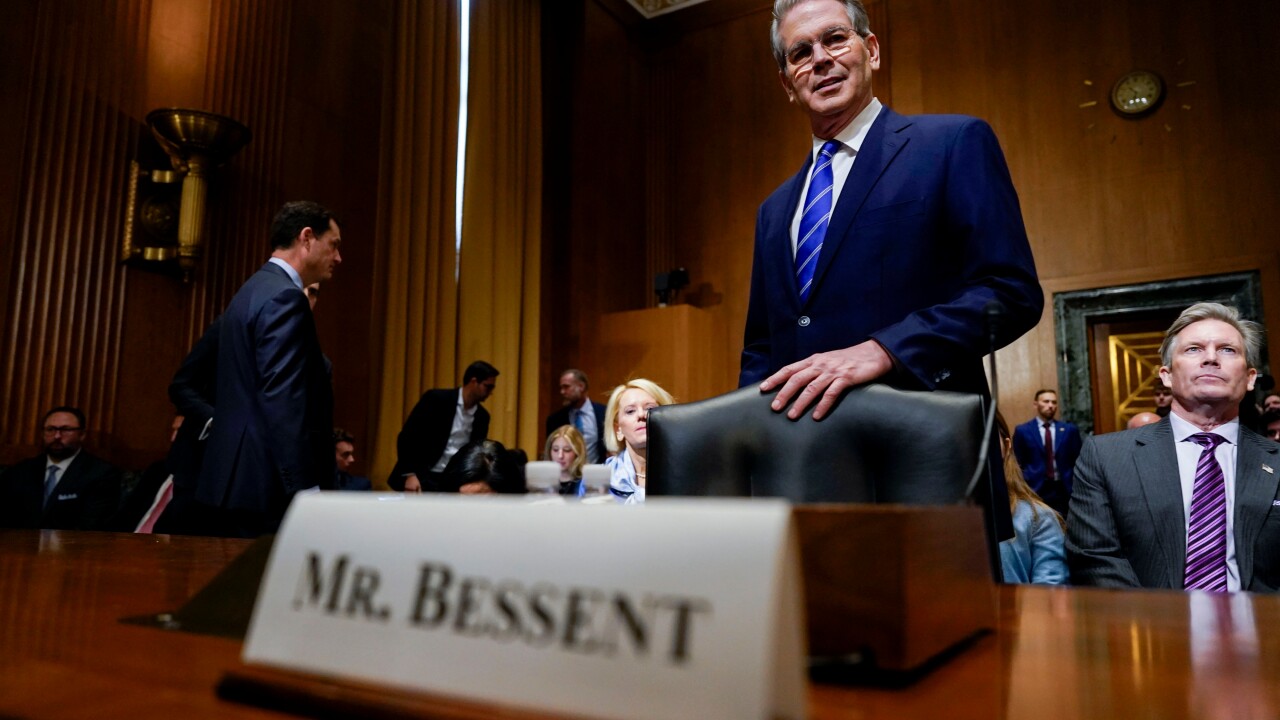
The Consumer Financial Protection Bureau on Thursday ordered Cash App's parent company Block to refund customers $120 million and pay a penalty of $55 million for failing to prevent fraud or provide customers with refunds.
Block separately agreed on Tuesday to pay $80 million to state regulators for compliance failures that created the potential for money laundering, terrorism financing, and other illegal activities, the Conference of State Bank Supervisors said.
The CFPB said that Block used a range of tactics to stop customers from seeking help, forcing them — and their banks — to bear financial losses.
For years, Block failed to provide any live customer service agents for Cash App, which prevented customers from having their fraud issues addressed and led some customers to web sites run by fraudsters posing as Cash App representatives. The CFPB said that Block engaged in deception by misrepresenting that it protected consumers from unauthorized transfers.
Cash App's investigations of fraud and unauthorized transactions were "woefully incomplete," the CFPB said, and customers were forced to ask their banks to attempt to reverse transactions that Block would subsequently deny. Cash App is required by law to investigate and resolve disputes.
"Cash App created the conditions for fraud to proliferate on its popular payment platform," CFPB Director Rohit Chopra said in a press release. "When things went wrong, Cash App flouted its responsibilities and even burdened local banks with problems that the company caused."
Block, the Oakland-based digital payments provider, said in a statement that it agreed to resolve issues related to Cash App's "historical customer service program."
"While we strongly disagree with the CFPB's mischaracterizations, we made the decision to settle this matter in the interest of putting it behind us and focusing on what's best for our customers and our business," the company said in a
The CFPB's
Many Cash App users link their bank account to the app and when a transaction occurs, the money is withdrawn from the user's account and sent to the transaction recipient. In Cash App's terms of service agreements, consumers are led to believe that disputes are the responsibility of their linked bank, which the CFPB said is inaccurate.
"The Electronic Fund Transfer Act requires that peer-to-peer platforms, including Cash App, investigate disputes of unauthorized transactions, and a company cannot simply use fine print to escape these legal requirements," the bureau said. "When it did conduct investigations, Block used intentionally shoddy investigation practices to close reports of unauthorized transactions in the company's favor."
Block also deprived Cash App users of effective customer service, the agency said, and left the network "vulnerable to criminals defrauding users." The company also claimed that its policy was to protect customers and issue refunds for unauthorized transfers but in many cases it "did not actually issue refunds," the bureau said.
Though Block included a phone number on the back of its Cash Card and in its Cash App terms of service, for many years the number did not connect consumers "to customer support of any type." Instead, the CFPB said, customers heard a pre-recorded message directing them to contact customer support through the app. Consumers could only contact Block through the app or through the mail and were often met with "delayed, inadequate, confusing, or inaccurate responses," the bureau said.
But the problems did not stop there.
"Consumers looking for an alternate route to Cash App customer service through web searches were targeted by fraudsters posing as Cash App representatives, who tricked them into giving up their passwords and other personal information," the CFPB said. "Block knew that its customers were being targeted by fraudsters in this way but failed to take timely action to address the issue."
Under the consent order, Block agreed to pay at least $75 million and up to $120 million to customers whose unauthorized transfers were not investigated and who did not receive refunds they were entitled to. In addition, customers whose accounts were locked for an extended period of time or who were not provided provisional credits during a delayed investigation also will receive refunds.
The CFPB said that consumers do not need to take action to obtain redress.
The company also was ordered to set up 24-hour, live-person customer service, investigate disputes to ensure that the misconduct does not recur, and provide timely refunds.
The $55 million fine will be paid to the CFPB's victims relief fund.
Under the multistate settlement, Block is required to submit a report to the states within nine months and will have a year to correct deficiencies after that report is filed, according to the Conference of State Bank Supervisors.
Financial services firms are required to perform due diligence on customers, including verifying customer identities, reporting suspicious activity, and applying appropriate controls for high-risk accounts.
Block earned $7.5 billion in 2023, of which Cash App generated roughly $4 billion, the CFPB said.






